Gender, health and the Sustainable Development Goals
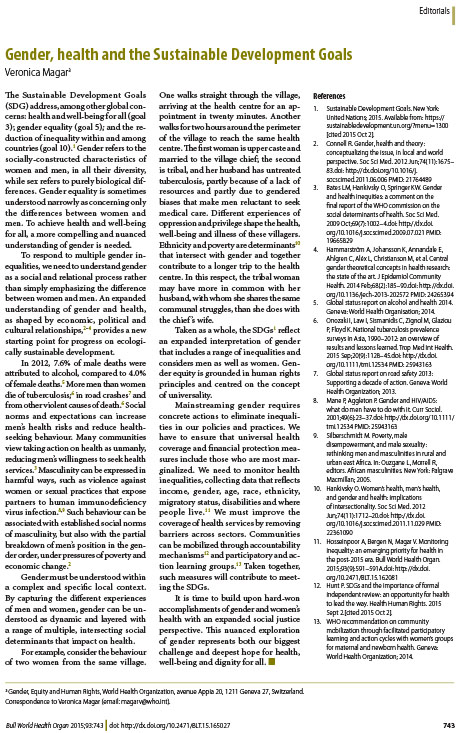
The Sustainable Development Goals (SDG) address, among other global concerns: health and well-being for all (goal 3); gender equality (goal 5); and the reduction of inequality within and among countries (goal 10). Gender refers to the socially-constructed characteristics of women and men, in all their diversity, while sex refers to purely biological differences. Gender equality […]
Pushing the boundaries of data to ensure gender equality across the life span
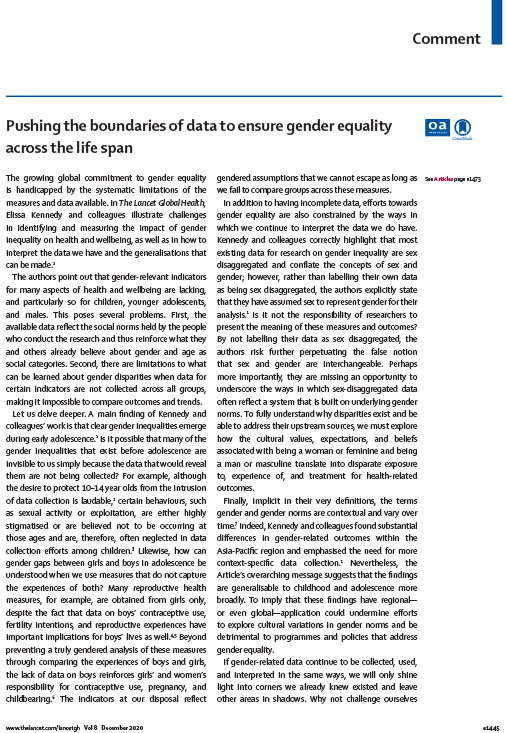
The growing global commitment to gender equality is handicapped by the systematic limitations of the measures and data available. In The Lancet Global Health, Elissa Kennedy and colleagues illustrate challenges in identifying and measuring the impact of gender inequality on health and wellbeing, as well as in how to interpret the data we have and the generalisations […]
Ten-year survival with analysis of gender difference, risk factors, and causes of death during 13 years of public antiretroviral therapy in rural Kenya
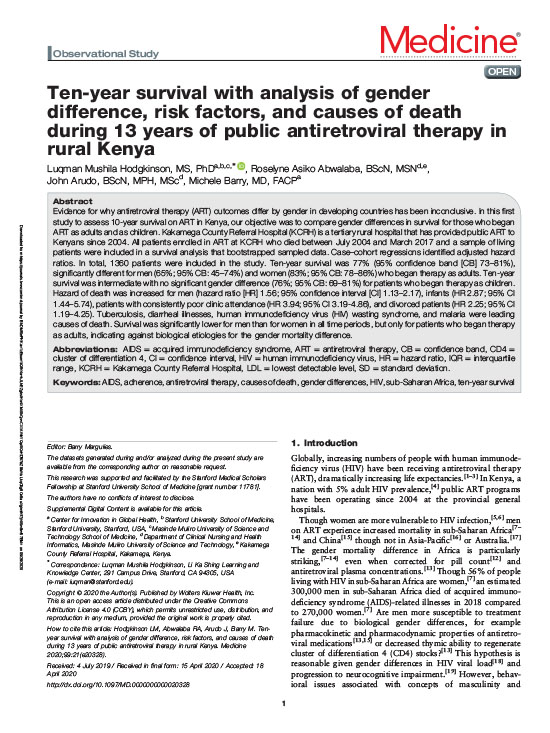
Evidence for why antiretroviral therapy (ART) outcomes differ by gender in developing countries has been inconclusive. In this first study to assess 10-year survival on ART in Kenya, our objective was to compare gender differences in survival for those who began ART as adults and as children. Kakamega County Referral Hospital (KCRH) is a tertiary […]
Rethinking Gender, Heterosexual Men, and Women’s Vulnerability to HIV/AIDS
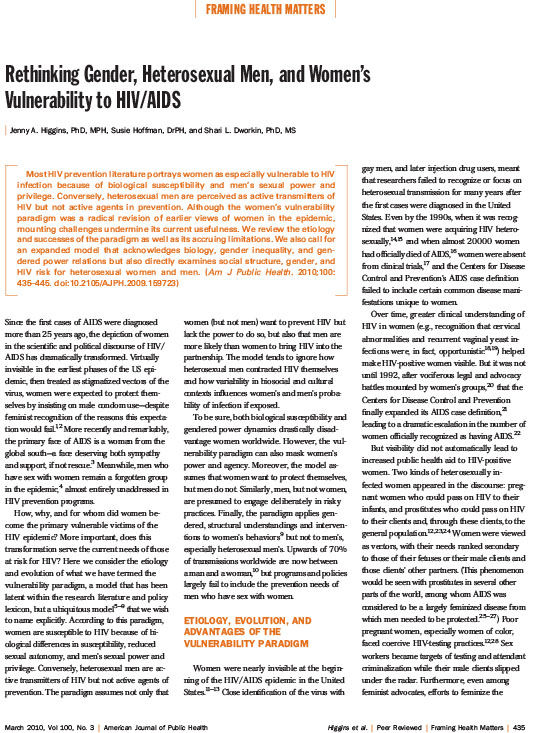
Most HIV prevention literature portrays women as especially vulnerable to HIV infection because of biological susceptibility and men’s sexual power and privilege. Conversely, heterosexual men are perceived as active transmitters of HIV but not active agents in prevention. Although the women’s vulnerability paradigm was a radical revision of earlier views of women in the epidemic, […]
Gender myths in global health
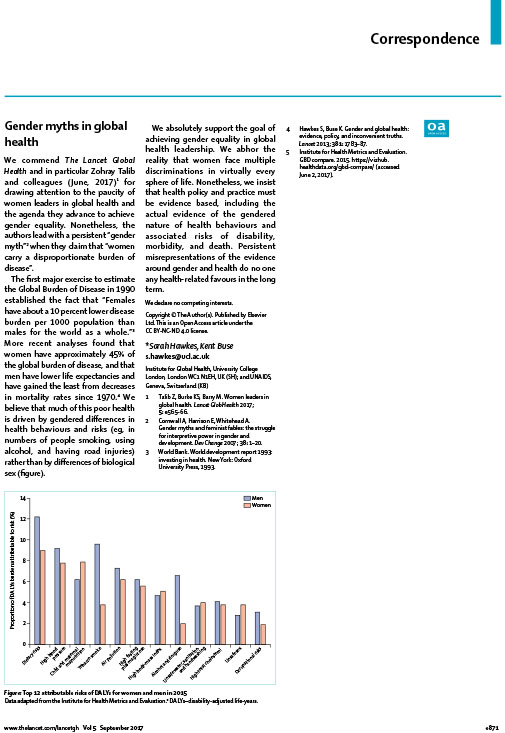
We commend The Lancet Global Health and in particular Zohray Talib and colleagues (June, 2017) for drawing attention to the paucity of women leaders in global health and the agenda they advance to achieve gender equality. Nonetheless, the authors lead with a persistent “gender myth” when they claim that “women carry a disproportionate burden of disease”.
Gender and global health: evidence, policy, and inconvenient truths
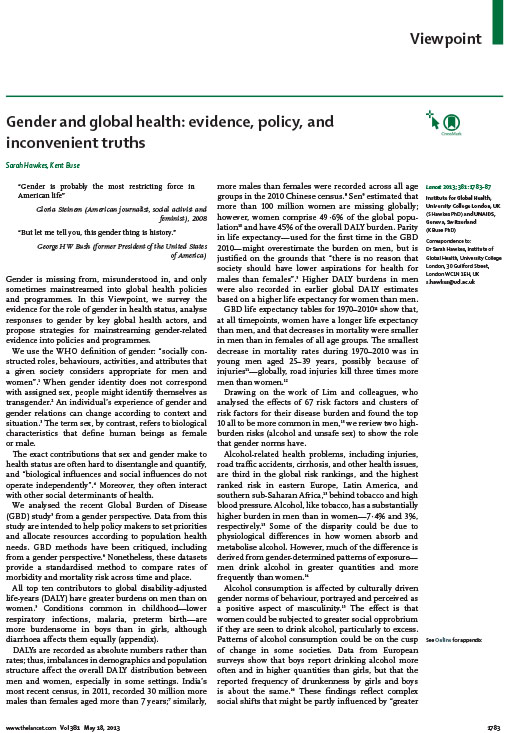
Gender is missing from, misunderstood in, and only sometimes mainstreamed into global health policies and programmes. In this Viewpoint, we survey the evidence for the role of gender in health status, analyse responses to gender by key global health actors, and propose strategies for mainstreaming gender-related evidence into policies and programmes.
COVID-19 and the gendered markets of people and products: explaining inequalities in infections and deaths
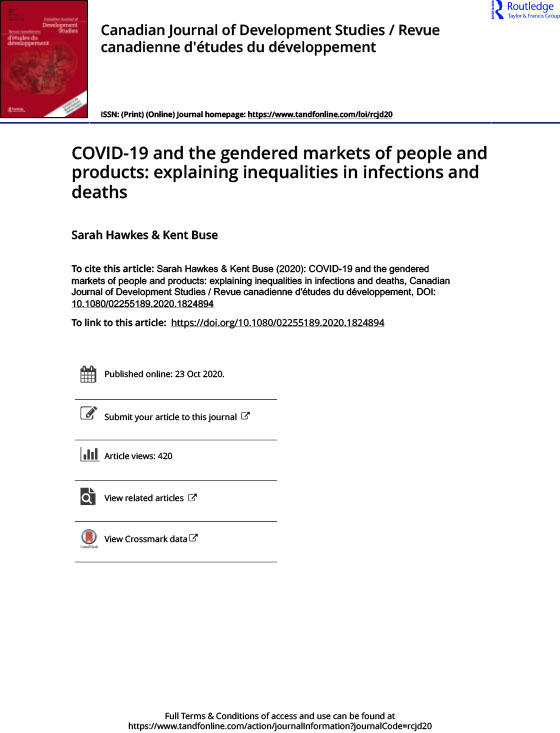
COVID-19 has exposed and exploited existing inequalities in gender to drive inequities in health outcomes. Evidence illustrates the relationship between occupation, ethnicity and gender to increase risk of infection in some places. Higher death rates are seen among people also suffering from non-communicable diseases – e.g. heart disease and lung disease driven by exposure to […]
No man left behind
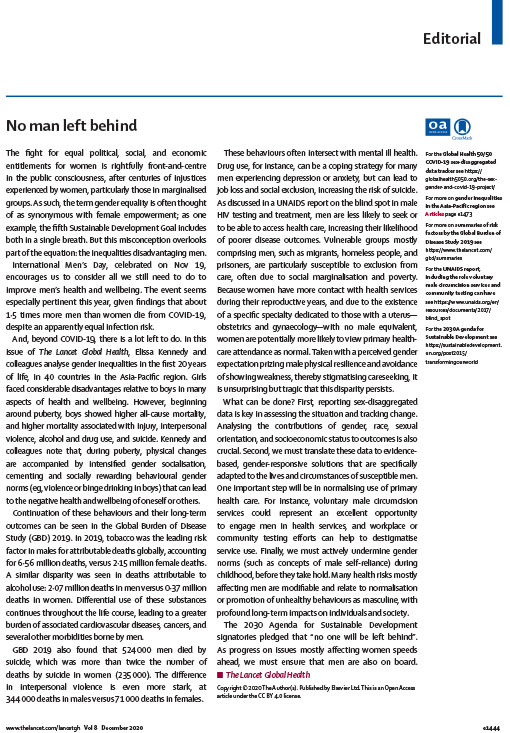
The fight for equal political, social, and economic entitlements for women is rightfully front-and-centre in the public consciousness, after centuries of injustices experienced by women, particularly those in marginalised groups. As such, the term gender equality is often thought of as synonymous with female empowerment; as one example, the fifth Sustainable Development Goal includes both […]
Men’s Perceptions of Women’s Rights and Changing Gender Relations in South Africa: Lessons for Working With Men and Boys in HIV and Antiviolence Programs

Emerging out of increased attention to gender equality within violence and HIV prevention efforts in South African society has been an intensified focus on masculinities. Garnering a deeper understanding of how men respond to shifting gender relations and rights on the ground is of urgent importance, particularly since social constructions of gender are implicated in […]
Male sex and the risk of mortality among individuals enrolled in antiretroviral therapy programs in Africa: a systematic review and meta-analysis
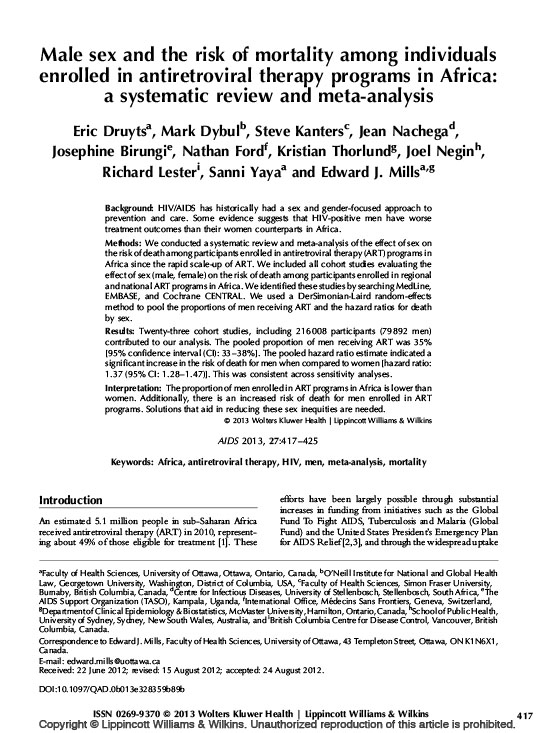
Background: HIV/AIDS has historically had a sex and gender-focused approach to prevention and care. Some evidence suggests that HIV-positive men have worse treatment outcomes than their women counterparts in Africa. Methods: We conducted a systematic review and meta-analysis of the effect of sex on the risk of death among participants enrolled in antiretroviral therapy (ART) […]


